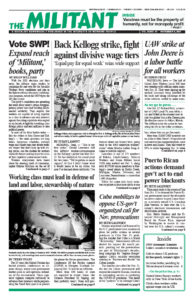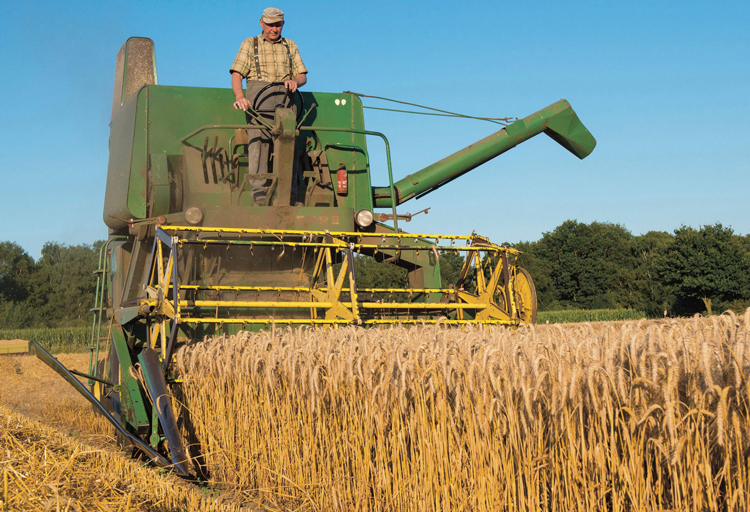CHICAGO — It’s an old ploy. When workers stand up and fight to improve wages and working conditions, the bosses and big-business press cry crocodile tears for those they claim will be hurt by the “greedy” workers. In the case of the United Auto Workers strike at John Deere, a propaganda campaign is underway to try to pit farmers against the strikers.
An Oct. 18 article in the online Farm Journal claimed that after just five days “the strike is already impacting farmers who are busy with harvest,” by making it harder to get parts and new farm equipment.
“The John Deere strike has farmers worried,” read the headline on the NBC News website Oct. 19. If you read past the headline, what actually comes across is how farmers were being squeezed by skyrocketing prices for new and used equipment and parts well before the strike. It cites an auctioneer who said used tractors and other farm equipment are selling for 30% to 50% more than they were two years ago. Meanwhile, John Deere is boasting record profits.
“John Deere is obviously making a lot of money. I think they can afford to share more with the workers,” Gary Hoskey told the Militant in a phone interview. He grows corn, soybeans and hay on 300 acres in central Iowa. He said new John Deere combines cost hundreds of thousands of dollars. “Most small farmers don’t have that stuff,” he said, describing how he recently needed a part to fix his 1978 John Deere combine. The dealer had the part, but the price was exorbitant. “So I figured out a way to jerry-rig it.”
“If John Deere cared about farmers, they wouldn’t force them to sign service contracts saying they can’t repair their equipment except through their dealers,” Jim Goodman, a retired dairy farmer in Wonewoc, Wisconsin, told the Militant. “The new equipment has software that’s locked. It’s very expensive if you have to get it fixed. John Deere’s policies hurt farmers way more than the strikers do.” There have been lawsuits by farmers against Deere and other companies in recent years demanding the “right to repair” one’s own equipment.
“I don’t think most farmers begrudge workers a wage raise,” Goodman added. “The corporations dictate to you, whether you’re a worker or a farmer who has to buy from them.”
While workers are exploited directly by the capitalist employers, small- and medium-scale farmers see much of the value they produce appropriated by the bankers who charge high interest on loans farmers need every year to get the crop in. And the big agricultural monopolists price gouge them for seed, fertilizer, pesticides and other inputs, and pay low prices for their produce at the other end.
Average farm debt adjusted for inflation has been rising for decades. It dipped briefly this year, due to federal aid and rising commodity prices. But farmers don’t expect that to last.
“Grain prices are up quite a bit this year, so that’s been helpful,” said Vernon Jantzen, who has a small farm in southeastern Nebraska and is vice president of the Nebraska Farmers Union. “But the cost of fertilizer, fuel and equipment is shooting up. That’s going to put more of a squeeze on farmers.”
“Already if you wanted a new John Deere combine you have to wait until 2023, they’re so backlogged,” Jantzen said. He was impressed by the fact that UAW members voted down a third tier wage. “People are sick of being pushed around and ignored.”
“The bottom line is I support the workers striking,” Hoskey said. “Farmers and labor need to support each other.”


